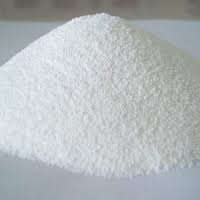Potassium is the second least dense metal after lithium. It is a soft solid and silvery in appearance, but it begins to gray immediately after being exposed to air. It's about the eighth most common element in the human body making up around 0.4% by mass and approximately 98% of potassium is found inside the cells. Potassium is essential for plant growth,[1] has many function involving homeostatic in animal[2], aids in regulatory function in bacteria[3] and as a role in the cytopathic effect in viruses[4] . Potassium is necessary for the function of all living cells.
Functions of Potassium in the human body
Potassium is needed for the activation of an important enzyme in carbohydrate metabolism such as pyruvate kinase. Potassium and sodium work together to regulate the hydration and acid-base balance in the blood and tissues, as well as the production of adenosine triphosphate (ATP) the body's energy production. The sodium-potassium pump helps generate muscle contractions, including regulating the heartbeat[5]. Potassium also combines in complex associations with other minerals - for instance, calcium and phosphorus in addition to sodium within the bones and the interstitial fluid surrounding the bone.[6]
Potassium Deficiency
Low concentration of potassium ions in the body is known as hypokalaemia. There are numerous physiological causes of hypokalaemia but the one we are concerned with in this website is inefficient dietary intake. A small drop in potassium level may result in a range of conditions (see table below). However, a large drop in potassium may result in cardiac arrest.[7]
| Signs | Symptoms |
|---|---|
| Abnormal heart rhythms | Feeling of skipped heart beats |
| Muscle damage | Muscle weakness or spasms |
| Muscle Stiffness | Aching and tender muscles |
| Dizziness and Fainting | Fatigue |
| Frequent Urination | Extreme Thirst |
| Abdominal Bloating | Stomach cramps |
References
- Leigh R & Wyn Jones R May 2006 "A Hypothesis Relating Critical Potassium Concentrations For Growth To The Distribution And Functions Of This Ion In The Plant Cell"
- Michael J et all, Dec 2012, " Sodium/Potassium Homeostasis in the Cell
- Epstein W 2003; "The roles and regulation of potassium in bacteria" Prog Nucleic Acid Res Mol Biol. 75:293-320.
- Choi B et all, 1998; "Role of potassium in human immunodeficiency virus production and cytopathic effects" Virology volume 247, Issue 2, 189–199
- Hermansen K. 2000 Diet, blood pressure and hypertension. Br J Nutr.:83(Suppl 1):S113-119
- Lanham-New SA. 2008; The balance of bone health: tipping the scales in favor of potassium-rich, bicarbonate-rich foods. J Nutr. 138(1):172S-177S.
- Kjeldsen K 2010 Winter; "Hypokalemia and sudden cardiac death" Exp Clin Cardiol. 15(4):e96-9

